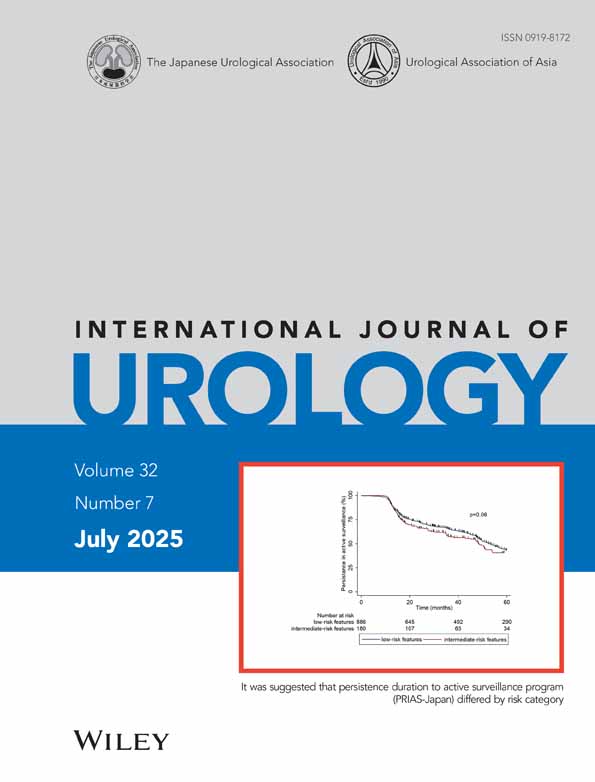Results of Transurethral Resection Plus Adjuvant Intravesical Chemotherapy for Superficial Bladder Cancer
Abstract
Background: We analyzed the results of conservative therapy for superficial bladder cancer to determine the risk factors for recurrence and progression.
Methods: Between May 1984 and February 1997, 111 patients with primary superficial bladder cancer were treated by a transurethral resection with or without intravesical instillation of chemotherapy, or for patients with concomitant carcinoma in situ (CIS), bacillus Calmette-Guerin. We examined the relationship between tumor stage, grade, incidence of concomitant CIS and recurrence-free survival according to pathologic findings and the drugs instilled.
Results: The incidence of concomitant CIS in pTI, grade 3 tumors was significantly higher than that in pTa, grade 1 tumors (42% vs. 3%, P= 0.006). The 5-year recurrence-free survival rate of all patients was 73%. There was no significant difference in recurrence-free survival and pathologic stage, tumor grade, presence of concomitant CIS, or drugs used for instillation. However, the recurrence-free survival in patients with 5 tumors was significantly lower than in patients with less than 5 tumors. Of the 111 patients, only 3 patients demonstrated disease progression and underwent a radical cystectomy, while 1 patient with a pTI b, grade 3 tumor developed a tumor in the ureter. No patient died of bladder cancer.
Conclusion: Our results indicate that the prognosis of superficial bladder cancer patients with a high-stage, high-grade (pTI, grade 3) tumor is favorable when treated by a transurethral resection and intravesical instillation. Bacillus Calmette-Guerin therapy is useful to prevent the recurrence of tumors with concomitant CIS.




